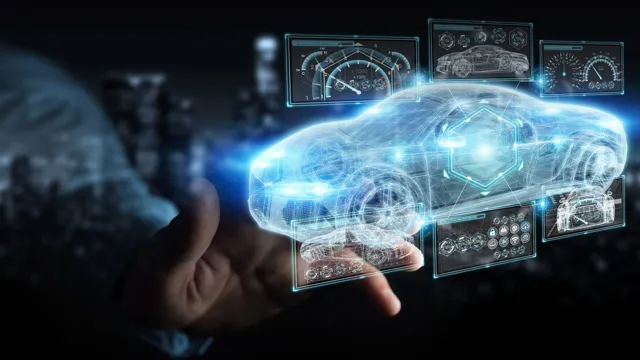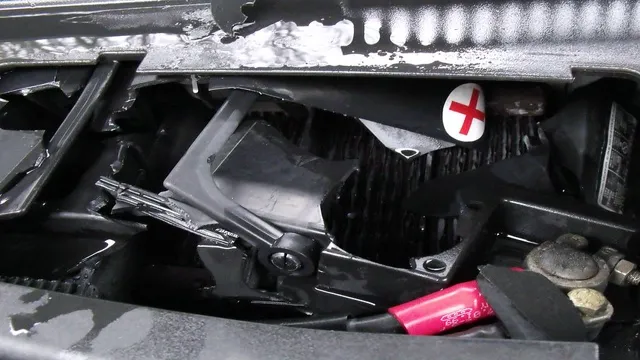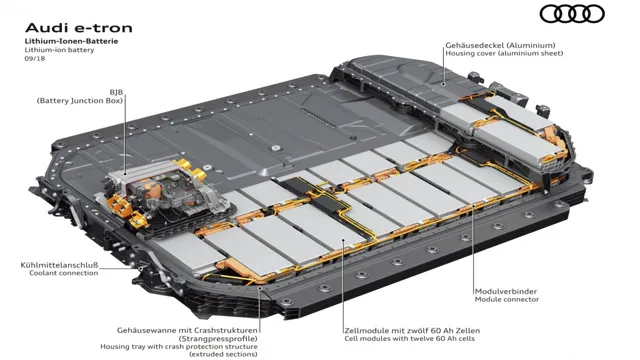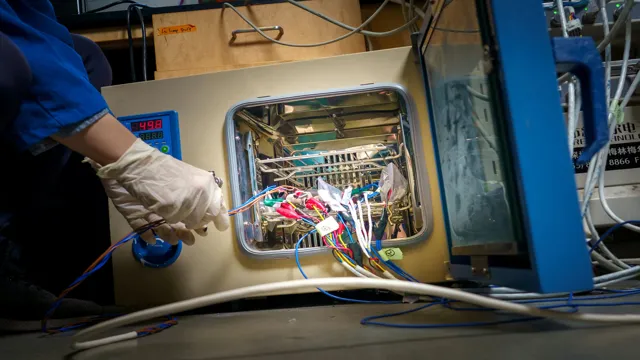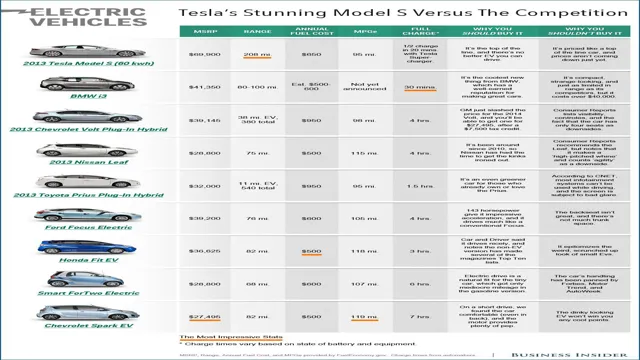Revolutionizing the Future of Transportation: The Power of Battery Technology in Electric Cars
Electric cars are becoming more popular, and for good reason. They produce significantly less pollution than traditional gas-powered vehicles, and they also provide a more efficient driving experience. However, one of the primary concerns with electric cars is their battery life.
Electric car batteries have traditionally been infamous for short battery lives, high replacement costs, and limited recharging options. Fortunately, battery technology has come a long way in recent years, and new innovations are being developed to address these issues. In this blog post, we’ll take a closer look at battery tech in electric cars, exploring the latest advancements and what they mean for electric vehicle owners.
Introduction to Battery Technology
When it comes to electric cars, battery technology is a crucial element to their functionality. The batteries used in electric cars are typically lithium-ion batteries, which provide a high energy density and long lifespan. These batteries work by transferring ions between a cathode and an anode, creating an electrical current.
Many factors go into designing and manufacturing batteries for electric cars, such as the composition of the electrodes and the electrolyte used. Engineers must also consider the weight and size of the battery, as well as its safety and cost. As technology continues to evolve, advancements in battery technology will likely lead to more efficient and effective electric cars on the road.
Types of Battery Technology Used
Battery technology has come a long way in recent years, with a range of different types of battery being used in everything from smartphones to electric vehicles. Some of the most popular options include lithium-ion, lead-acid, nickel-cadmium, and nickel-metal hydride batteries. Each of these types comes with its own set of benefits and drawbacks, depending on factors such as cost, charging time, and environmental impact.
Lithium-ion batteries, for example, are known for their high energy density, making them ideal for use in portable devices. On the other hand, lead-acid batteries are relatively inexpensive and reliable, but are not as efficient as other options. Ultimately, the choice of battery technology will depend on the specific needs of the device or system in question.
For eco-conscious consumers, there are also options such as saltwater batteries, which use non-toxic and renewable materials to store energy.
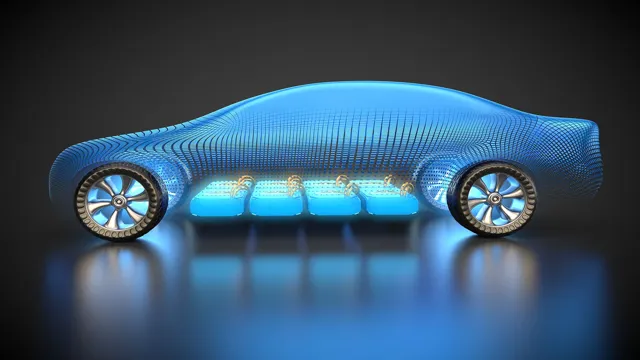
Benefits of Battery Technology in Electric Cars
Battery technology is at the forefront of electric car innovation, and it’s no wonder why. This essential component provides electric cars with the energy they need to traverse long distances. Without the right battery technology, electric cars wouldn’t have the power to perform daily driving tasks, making them impractical for most people’s needs.
The battery is essentially the heart of an electric car, and its primary benefit is providing range and energy efficiency. With advancements in battery technology, electric cars can travel further and more efficiently, making them a practical alternative to gas-powered vehicles. Additionally, battery technology enables electric cars to recharge quickly, providing drivers with more convenience and less time spent searching for charging stations.
It’s clear that the benefits of battery technology have led to a surge in electric car popularity, and as technology continues to improve, the potential for even more benefits is limitless.
Current Battery Technology in Electric Cars
When it comes to electric cars, the battery technology used is critical for the vehicle’s performance and efficiency. Most electric cars nowadays use lithium-ion batteries that come in different sizes and capacities. These batteries have high energy density, making them suitable for powering electric cars.
However, the technology is still evolving, and car manufacturers are looking for ways to improve battery performance, durability, and charging time. A few companies are also experimenting with solid-state batteries, which are believed to be more efficient and safer than lithium-ion batteries. With current battery technology, electric cars can cover decent mileage on a single charge, but there is still room for improvement.
As advances in battery technology continue, electric cars will become even more practical and affordable for everyday use.
Lithium-ion Batteries
Lithium-ion batteries are currently the most popular battery technology used in electric cars. These batteries are known for their high energy density, which means they can store a lot of energy in a small space. They are also lightweight, making them ideal for use in vehicles.
Another advantage of lithium-ion batteries is their ability to be recharged quickly. However, these batteries do have some downsides. They can be expensive to produce, and their lifespan can be limited.
Additionally, there have been concerns about the safety of lithium-ion batteries, as they have been known to catch fire or explode in certain situations. Despite these drawbacks, lithium-ion batteries remain the go-to choice for most electric car manufacturers due to their overall efficiency and reliability.
Solid State Batteries
Current Battery Technology in Electric Cars The current battery technology in electric cars revolves around lithium-ion batteries. These batteries are designed to store high amounts of energy and power the electric motors that propel the car. However, they do have some limitations.
Lithium-ion batteries are prone to overheating which can result in fires and explosions. Additionally, they have a limited lifespan, typically between 5-10 years, before they need to be replaced. This is where solid-state batteries come in as an exciting development.
These batteries use a solid electrolyte rather than a liquid one, which makes them safer and more durable than traditional lithium-ion batteries. They also have the potential for higher energy density, allowing for greater range in an electric car. But there are still challenges to face in implementing solid-state batteries in cars.
The manufacturing process is currently expensive and time-consuming, and scaling up production still needs to be achieved. However, research and development are ongoing, with automakers and battery manufacturers investing heavily in this technology. In the not-too-distant future, solid-state batteries may offer a safer, more efficient way to power electric cars.
However, for now, lithium-ion batteries remain the industry standard, providing reliable and consistent power for the growing number of electric vehicles on the road.
Nanowire Batteries
Nanowire Batteries When it comes to electric cars, the battery technology used to power them has come a long way in recent years. While early models could only go a few miles before needing to be recharged, new batteries are capable of getting drivers hundreds of miles on a single charge. Today, most electric cars rely on lithium-ion batteries, but researchers are exploring new materials that could offer even greater performance.
One promising technology is nanowire batteries, which are batteries made using ultra-thin wires that are just a few nanometers in diameter. These tiny structures have a very high surface area, which means they can store more energy in the same amount of space as a traditional battery. This could lead to electric cars with longer ranges and lighter batteries that take up less space.
While nanowire batteries are still in the experimental stage, they could be the future of electric car battery technology.
Future of Battery Technology in Electric Cars
Battery technology used in electric cars is constantly evolving, and the future of this technology is exciting. Lithium-ion batteries have been the go-to for electric cars, but there are new developments on the horizon. Solid-state batteries are currently being tested and have the potential to be a game-changer.
These batteries offer faster charging times, longer ranges, and a safer option due to their solid electrolyte instead of the liquid electrolyte used in lithium-ion batteries. Additionally, researchers are exploring the use of new materials in batteries, such as magnesium, which could offer higher energy storage capacities. As the demand for more sustainable and efficient modes of transportation grows, it is apparent that battery technology will continue to advance and shape the future of electric cars.
Potential Breakthroughs in Battery Technology
As the world increasingly seeks to reduce carbon emissions, the quest for better battery technology is gaining steam. In the electric car industry specifically, the need for longer-lasting, faster-charging batteries is critical. Fortunately, researchers all over the world are working towards exciting breakthroughs that could change the game.
Scientists are exploring the use of materials like silicon and graphene to improve battery capacity and charging speed. Others are investigating new structures that offer increased stability and safety. There’s even talk of solid-state batteries that completely eliminate the use of harmful chemicals and offer improvements in both power and capacity.
While there are still some challenges to be solved, the future of battery technology in electric cars looks promising. As more advancements are made, the possibility of a completely electric-powered transportation system becomes more tangible.
Challenges Facing Battery Technology Advancements
As electric cars become more prevalent on the roads, the need for improved battery technology is more pressing than ever. However, there are several challenges facing the advancement of battery technology. One major challenge is the limited availability of certain materials required for the creation of batteries, such as lithium.
Another challenge is the issue of safety, as some types of batteries can be prone to overheating and catching fire. Additionally, there is a need for batteries to be more efficient and cost-effective, as current advancements have been primarily focused on increasing capacity and lifespan. Despite these challenges, the future of battery technology in electric cars remains promising with ongoing research and development.
With continued innovation, we can hope to see solutions that make electric cars even more practical and sustainable for everyday use.
Conclusion
In conclusion, battery technology used in electric cars is sparking a revolution in the automotive industry. Gone are the days of relying solely on fossil fuels to power our vehicles. With the advancements in battery technology, we can now go the extra mile without harming the environment.
It’s like having a portable power plant in your car, ready to take you on your next adventure. So, let’s embrace the power of batteries and drive towards a greener future!”
FAQs
How has battery technology improved in electric cars over the years?
Battery technology in electric cars has improved significantly, with advancements in lithium-ion technology, solid-state batteries, and increased energy density.
How do electric cars with different battery capacities compare in terms of range?
Electric cars with larger battery capacities typically have longer ranges, while those with smaller battery capacities have shorter ranges.
Can batteries in electric cars be recycled?
Yes, batteries in electric cars can be recycled and reused for other applications such as energy storage.
What are the limitations of current battery technology in electric cars?
Current battery technology in electric cars still has limitations in terms of range, charging time, and cost, although ongoing research is addressing these issues.
